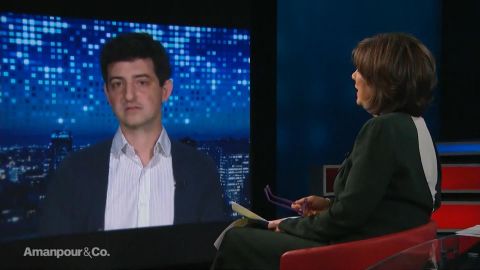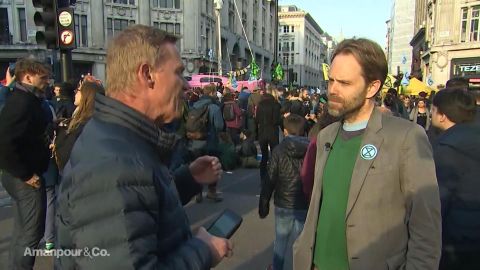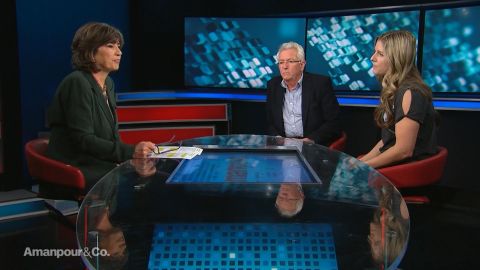Read Transcript EXPAND
CHRISTIANE AMANPOUR: Take us now back to the beginning of this. Why is the United States sort of an outlier when it comes to this almost official policy in the Republican Party of climate denialism?
NATHANIEL RICH, AUTHOR “LOSING EARTH”: Yes, it’s remarkable especially given the fact that as early as 1979 we had total scientific consensus on the fundamental science of climate change not just within the scientific community but at the highest levels of the U.S. government, the intelligence agencies, and, of course, the oil and gas industry. You know, the first efforts – and this is the story of losing Earth – of a handful people, scientists and activists, a few political bureaucrats who tried to move from the sort of scientific arcane of theory to action. And over the course of the decade ’79 – ’89, it was not a partisan issue. There were setbacks, but by the end of the decade they’d moved it to the threshold of a solution or what they thought was a solution – a binding treaty to reduce emissions that would have been signed by every country in the world, but at the very last minute the U.S. dropped out and in retrospect that’s about the closest we’ve gotten since then, but that is also the moment at which the oil and gas industry started to work on this propaganda and influence campaign that we are still in the grips of 40 years later.
AMANPOUR: You’ve just talked about the industry and, indeed, in the late 80s the American petroleum institute started actually paying certain scientists to write op-eds that questioned global warming. So how did that work and how did that gain traction then in the mainstream?
RICH: Yes, it’s a remarkable story and, you know, the Director of the Environmental Unit at API told me all of this when I was doing my research that in ’89 as it seemed that there was sure to be some kind of regulatory policy and some kind of global treaty, the industry started to figure out what its public stance should be. And they put together a working group and the conclusions at first were essentially we should talk about the uncertainty in the science, where it exists – they weren’t yet saying that the whole science was uncertain – and we should make sure that no policy – we endorse no policy that affects the bottom line. That’s the beginning of it and they start to find a few scientists, and it’s a very small few. It’s about three or four people originally who are close to the industry and can be trusted to write editorials often for a fee, $2,000 a pop at the time – and start to speak to reporters. And all of a sudden an issue that at that point was gaining a huge amount of attention nationally and was not – there weren’t two sides to it. Everyone was just concerned and trying to figure out what to do about it.
About This Episode EXPAND
Christiane Amanpour speaks with Keith Scholey and Sophie Lanfear about the new show “Our Planet;” Michael Holmes and Rupert Read about protests in London; and Nathaniel Rich about the Republican Party’s climate denialism. Hari Sreenivasan speaks with Priscilla Chan about her latest projects, education reform, and paying more tax.
LEARN MORE



